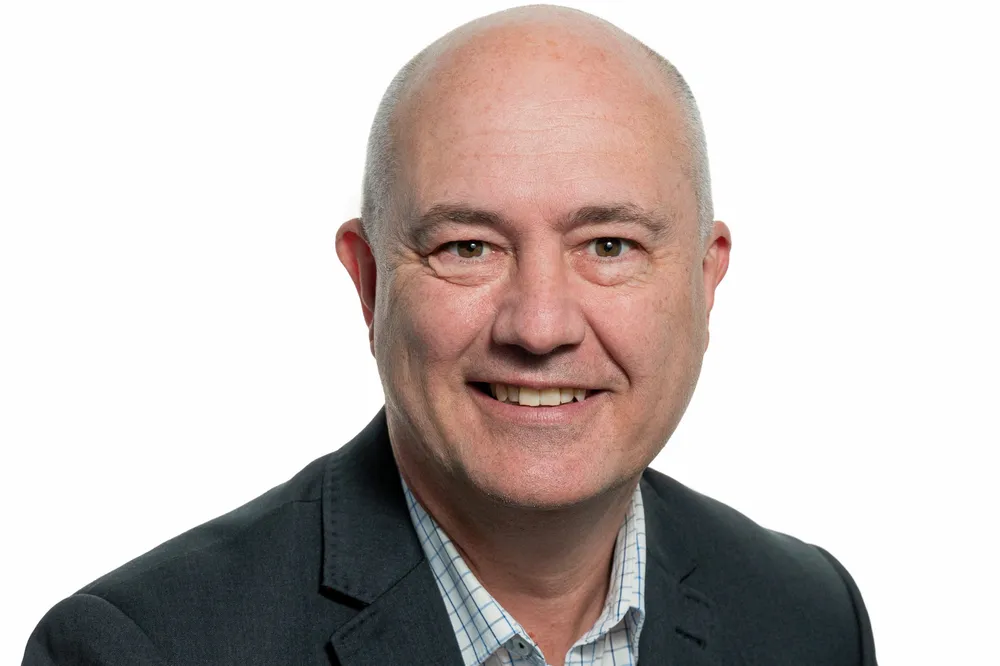'Trust could be the missing ingredient to speed up the push to net zero'
OPINION | An all-too-often overlooked factor in project development should play a major role in delivering major energy transition infrastructure, argues Paul Ebert

The importance and impact of trust on social progress increased in prominence when sociologist Robert Putnam developed the concept of 'social capital’ 25 years ago.
Since the phrase was coined, extensive academic literature has explored social capital, with more recent research turning to tackling society’s most pressing issue – climate change. The journey to net zero demands we take trust into account as a catalyst for large-scale infrastructure delivery.
At this year's World Economic Forum (WEF) in Davos, the UN secretary-general António Guterres emphasised a disturbing lack of trust, and identified how geopolitical divides are preventing the world from coming together to form global solutions to global challenges including climate change.
To address the climate crisis, trust needs to be built between governments, businesses, and communities and the roadblocks removed to accelerate delivery response to the scale and speed needed to meet the challenge. If we do not, the world will simply fail to build the infrastructure of climate response in time. It may not even get halfway.
How trust can improve project outcomes
Building trust among stakeholders isn’t just a 'nice to have', it is an accelerator of project outcomes, boosting delivery confidence, heightening team performance, improving information flow, fostering a sense of shared mission, and producing more reliable relationships. These benefits help increase certainty about key project outcomes, productivity across the value chain, and acceptance by society and stakeholders during project development.
However, while trust between stakeholders is seen as a critical enabler, it is not, on its own, sufficient for successful outcomes. For example, trust cannot substitute for core competencies and capabilities, strong performance by individual project personnel, inclusive strategies for engagement and participation, and equitable sharing of project benefits and risks. SMEs also noted examples of projects that met objectives despite a deficit of trust. It is likely then that these other characteristics influence the establishment of trust (or distrust) and are mutually reinforcing.
A prime example of where trust – or the lack thereof – impacts progress is in the realm of carbon capture and storage (CCS). Despite its potential, there is considerable disagreement among academics, industries, NGOs, and policymakers about the role CCS can or should play in a net zero future. FATR4 reveals that trust deficits are a significant roadblock for this technology.
Princeton’s research into attitudes towards CCS in the United States found that although most (76%) CCS professionals were comfortable sharing information with companies working on the same CCS project, 64% said they were skeptical about the information they received in return. Additionally, 59% of these professionals express skepticism towards information from regulators. With CCS primed for significant growth, it is important that trust can be built with stakeholders to realise its potential.
This is compounded by a lack of public trust. Only 28% of public respondents had heard of CCS, and most lacked trust in it as a technology, with government regulations and corporate leaders identified as the two key sources of distrust. All respondents expressed a lack of trust in the media to communicate effectively on CCS, with environmental organisations most trusted. However, some of these organisations do not support CCS, so restoring trust with them presents a daunting, but important, industry challenge.
A framework for success
The findings point to a deficit of trust, that if not addressed, will likely slow the achievement of net zero. However, as trust is not a simple, singular notion, the strategies and practices deployed to build durable trust – that remains strong over time – must be tailored to different geographic, cultural, and socioeconomic settings.
To develop a deeper understanding of these issues and identify frameworks that could support durable trust among net zero stakeholders, Worley is supporting a new research program at Princeton titled ‘Net Zero Infrastructure at the Speed of Trust’.
This research will examine definitions of trust from various disciplines and perspectives – economics, moral philosophy, religion, sociology, political science, and psychology – to synthesise definitions of justice and fairness, and develop insights on the creation, re-establishment, and maintenance of trust. It is likely that the work will build around four key pillars – engagement, transparency, alignment, and adaptability.
Trust is a missing ingredient needed to turn our collective climate ambitions into reality. By exploring and developing these trust-based delivery frameworks, we have the chance to leverage trust to accelerate the energy transition at a pace the world desperately needs.
- Paul Ebert is group director, sustainability and energy transition leadership, at Worley